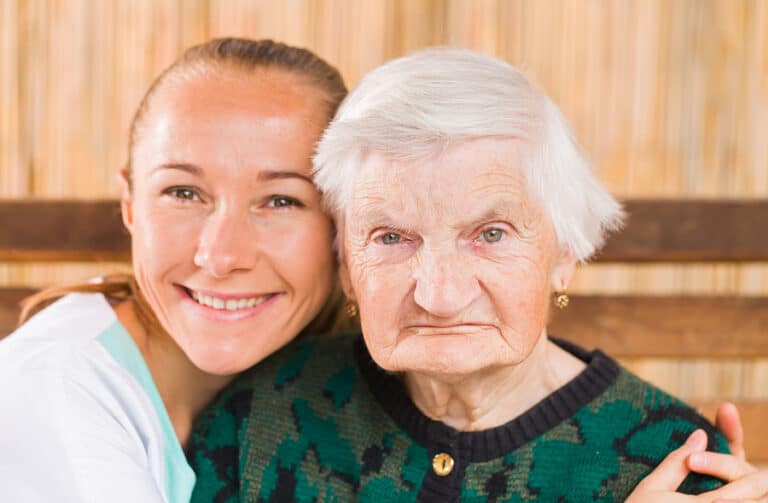Now that your elderly loved one’s Alzheimer’s is progressing, it may be more difficult to communicate with them. This is something that all family caregivers of someone who has this disease go through. While you can’t necessarily change how your elderly loved one communicates, you can change the way you communicate. If you follow these tips, you can improve the communication you have with your elderly loved one.
Getting into the Proper Position

It can be really tough to communicate with someone who has Alzheimer’s disease. If your elderly loved one has this disease, the first thing to do is to make sure they can see you when you are talking to them. You should be facing your elderly loved one when speaking. This way, they can see the hand gestures you use and what your face looks like. The better your elderly loved one can see you, the better they can understand what you are trying to communicate to them.
Using Visual Cues
Another way to improve the communication between you and your elderly loved one is to use visual cues. People who have Alzheimer’s disease often understand people better when they show emotions, use gestures, and point at the things they are referring to. You should also keep an eye on your elderly loved one’s gestures and facial expressions. This way, you can tell what they are trying to communicate, as well. If needed, you can get in-home care to help with communications. There are home care providers who are trained in Alzheimer’s care.
Using Simple Sentences
Your elderly loved one’s brain is changing a lot now that they have Alzheimer’s. The more time that passes, the less they can understand lengthy sentences and conversations. If you want to improve the communication between you and your elderly loved one, you should use simple sentences. Make sure the words that you use in those sentences are not complex. Think about what words you would use when you talk to an elementary student. Those are the same words to use when talking to someone who has Alzheimer’s disease.
Conclusion
If your elderly loved one has Alzheimer’s disease, their brain is changing. This is impacting their behavior, communication, and many other aspects of their life. If you would like to communicate better with your elderly loved one, make sure you use the tips mentioned above. If needed, you can get in-home care providers to help with the communication between you and your elderly loved one.
If you or an aging loved one are considering hiring In-Home Care Columbia, SC, contact Heart of the Carolinas Home Care at 864-991-3116. Providing Home Care Services in Greenville, Simpsonville, Greer, Anderson, Spartanburg, Mauldin, Seneca, Laurens, Charleston, Columbia and the surrounding areas.
Sources
https://www.ncbi.nlm.nih.gov/pmc/articles/PMC2925413/
- How Home Care Supports Seniors Who Are Hard of Hearing - March 28, 2025
- Why Seniors Should Consider Companion Care At Home - March 10, 2025
- What Happens As Seniors with Dementia Lose Competence? - February 26, 2025

